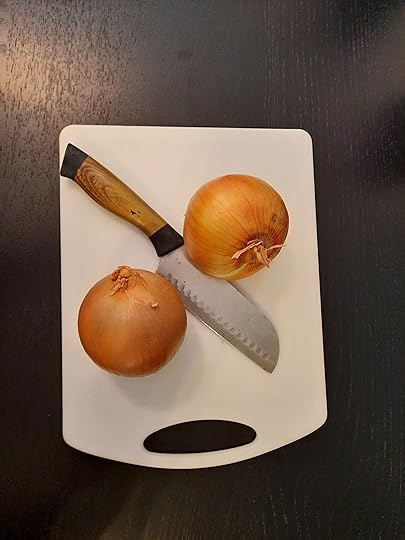Marbeth Skwarczynski's Blog, page 7
July 1, 2023
I Meme, You Meme
It is no secret that I love memes. On my weekly writing calendar, I have designated the beginning of my workweek as “Meme Monday.” When I was a literature teacher, I would print out and laminate book-related memes to use as hall passes. I figured everyone needed a laugh and something to read in the bathroom.



Now that I write full-time, I make my own memes and post them on Facebook, Instagram, and Twitter, but the idea behind them stays the same: people need a laugh and something to read on the toilet.
Making memes are reflective of my writing journey, and the people who enjoy them the most are fellow writers since we’re all in the same literary boat.





But of course, there is more to writing than writing. There is also:






Ah, marketing! That line we tread where we want the validation that we’re not wasting our lives taking dictation from our imaginary friends (also known as writing novels) but also trying to accept that our self-worth isn’t connected to our sales. (Because they are not, right? Right?!)
Yes, writers are delicate little flowers deep on the inside. We write our hearts into every story, then send those stories out into the world where … well, where we HOPE someone will read our words and let us know what they think. We love a good review. We NEED a good review. Reviews not only encourage us, but they also encourage OTHER READERS to give our work a shot. It also does a little somethin’ somethin’ to the algorithms at Amazon, but that’s beyond my knowledge. Just–you know–leave a review if you like a book. You’ll make a writer’s WHOLE day.
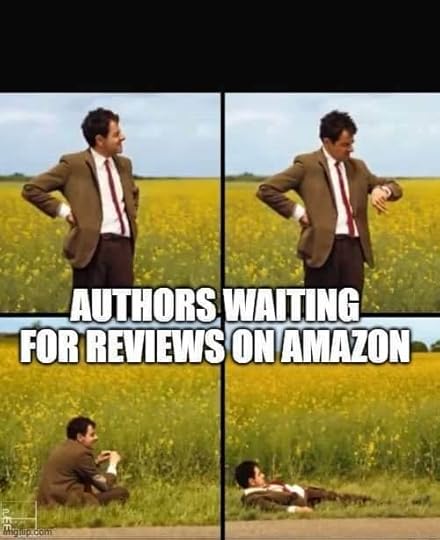
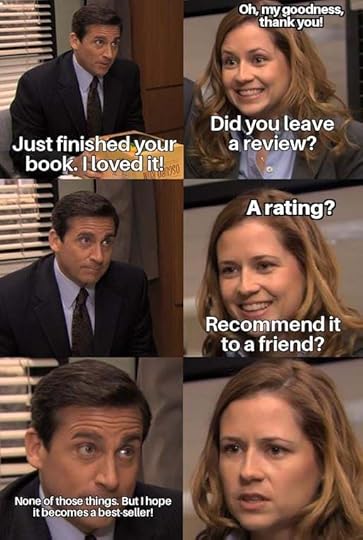
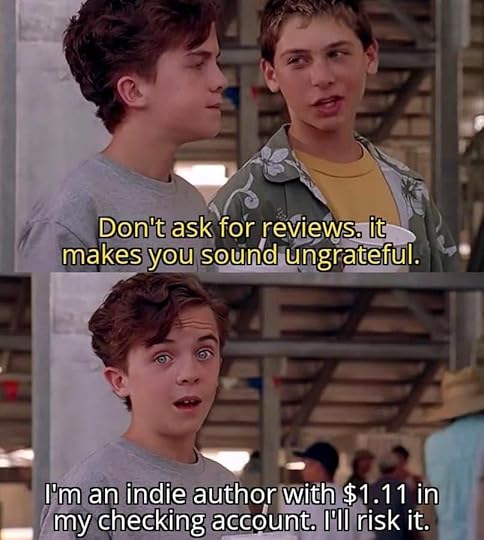
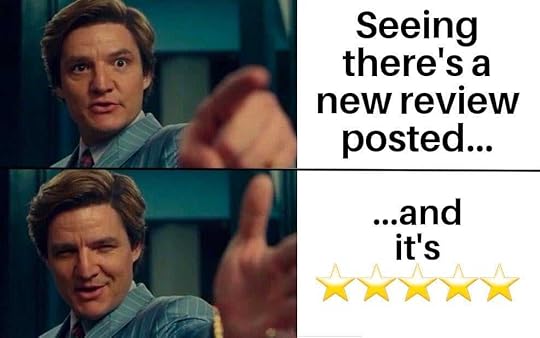
I try to keep my novels conversational and sprinkle some lightness and wit throughout because my primary subject matter is pretty heavy (church abuse). I also break up the serious nature of my books with–you guessed it!–memes!


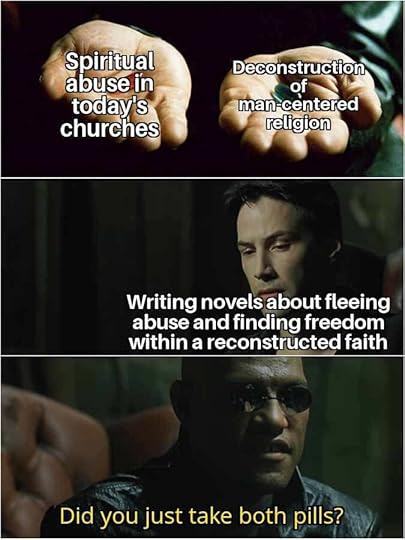


Writing can be a solitary endeavor, but it’s rarely lonely. Still, as an indie writer, it is up to me to come up with ideas for my novels, my marketing, and my sales, so I’ve learned to make my own fun.

Here’s to fun, laughter, and to your feet not falling asleep while you’re reading in the bathroom.

June 24, 2023
Beware the Dog Whistles
Everything comes around again — or as Solomon put it:
The thing that hath been, it is that which shall be; and that which is done is that which shall be done: and there is no new thing under the sun. (Ecc 1:9)
Part of writing contemporary Christian fiction full-time is keeping tabs on what is happening in Christianity today. Fortunately, I discovered brilliant individuals and groups who kept their humility and longing for answers firmly in front. They focus on praising where praise is due and condemning abuse done in God’s name. They review old extrabiblical teachings that help prop up abusers within the church and encourage a return to biblical practices instead. They demand financial accountability in churches where millions are brought in via tax-free tithes and offerings and yet have staff members who depend on social programs to feed, house, and provide medical care for their families.
Most importantly, they encourage former victims to leave spiritually abusive situations and grow, change, and enjoy their new lives.
That may sound easy, but it’s not.
Many who have been in abusive churches, marriages, or childhood homes have often missed out on developing certain skills. They were condemned for asking questions. Critical thinking was on par with rebellion. Having direct access to their personal finances was something they’d never experienced. Expressing an opinion was too forward. Having personal “wants” was selfish. Medical needs were often ignored. Coming out of a high-control religious group requires complete retraining for a person to navigate the real world.
I’ve also followed a few groups that started out great, asking serious, biblically based questions and digging deep to find answers, only to unfollow them when I saw the patterns of narcissism and exclusionism begin to develop. The only difference between them and the organizations they were leaving was that now THEY were in charge. While they claim to follow God and the Bible, their message gets lost as they point fingers of derision at everyone else and claim superior knowledge and position. They declare they are different but are just more of the same.
One of the primary things the original high-control religious group and the newer version have in common is the use of dog whistles. By this, I mean they take something that isn’t all that significant, and they attach weighty importance to it — to the point that if you do not react “properly” to that dog whistle, it proves that you aren’t spiritually strong, or maybe aren’t saved at all. The originals were great at creating dog whistles, to the point where people in their congregations developed horrible anxiety and fear that they would never be good enough for God’s kingdom. How could they be? They weren’t even good enough for their local church.
The wonderful thing is that once you start to recognize the dog whistles, they lose power. You can see the manipulation and fearmongering behind them.
Over the past three years, I’ve watched high-control religious groups (both old and new) trot out their pet dog whistles to create a spirit of fear among their followers. Once fear is at its height, they can offer a false sense of security. They tell their followers that if they only do X, Y, and Z, they will be safe and that God will be happy with them — until the next big threat to their church. When following the formula, congregants have their fear replaced with condescension and a more ardent fandom for the high-control religion. After all, look at how they protected their congregation from the big bad world outside.
These dog whistles also have a secondary purpose: they prevent people from examining the real problems WITHIN their church. They are manipulative distractions. People’s fear of the outside world becomes the primary focus, and the abusive practices are quietly covered up.
Over the past three years, I’ve seen the following dog whistles being employed:
Bible versions (only ONE is the true Word of God, using any other opens you up to Satan’s power)Women’s submissiveness to men (to be shown in their dress, tone of voice, and unquestioning obedience while ignoring the biblical command that all Christians are to be submissive to each other)Boycotts (whether stores, restaurants, music, TV shows, movie studios, or other churches; any organization is fair game)Criticizing deconstruction (those who question what they have been taught about God and the Bible while in high-controlled religion are accused of leaving their faith)Warnings of demonic influence (an umbrella term that can be applied to anything from items found in thrift shops to music, books, and collectibles; usually works in tandem with bannings and burnings)Prosperity Gospel (condemning the idea that God will give you material possessions if you live for Him, BUT pushing a different version of the same teaching: God will protect/bless you if you just follow a formula of behavior)Public schools (parents are “encouraged” to enroll their children in Christian schools or homeschool, but not every family is equipped or able to do so; a parent-involved education at a public school can be well-rounded and beneficial to a family)This is by no means a complete list. There are plenty of others, I’m sure. But the question is, what are the issues that are being ignored in favor of the dog whistles? I have a short list of those as well.
Sexual abuse (covering the fact that the abuse happened, protecting abusers, testifying on behalf of the abusers in court, vilifying the victims, offering victims no support, removing victims from the congregation)Economic abuse (little to no oversight as to how leadership uses the money raised by the congregation; hiring workers but paying them less than they need to survive)Physical abuse (people of this generation are moving more swiftly to leave abusive households, taking their children with them, and leaving behind churches that instructed them to remain in danger and pray for God to change the abuser — as if they haven’t already been praying)Emotional abuse (convincing those in the congregation that they are worthless unless they are constantly working to build up the ministry, then proclaiming their exhausting work is nothing more than “reasonable service.”)Spiritual abuse (using the manipulation of Scripture and church teaching to convince others that they cannot report an abuser who sins against them in any way; instead, the victims see their abuser as a spiritual leader who must know more than they do about what God wants from them)More people are realizing that the God of the Bible and the god they’ve heard about from abusive teachers are not the same entity. The more we recognize the dog whistles for the emotional manipulations they are, the faster we can turn away from the abusers and toward a loving God.
June 17, 2023
Warrior Women
Part of my writing routine is checking my social media pages while drinking my morning cup of tea. This puts me in touch with readers, my writing friends, and the latest news concerning the fight against spiritual abuse. My morning online activities are mostly overwhelmingly positive—primarily because I choose to follow positive people. Not perfect. Not by a long shot. My online circle has no problem asking for prayer, admitting their struggles, and deciding that it is okay to be imperfect.
Many also have some adorable cats, so that’s always a plus.
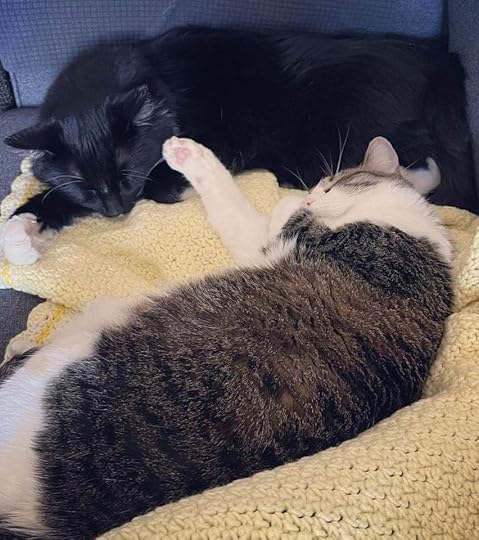
Despite being imperfectly natural, those with whom I fellowship online tend to find the positive aspects of life, even when things are hard. They are encouragers.
The only site I frequent where the term “doom scrolling” could be applied is Twitter. Where Instagram is about sharing things people love, and Facebook is about building relationships, Twitter is about standing one’s ground. But, of course, I choose to follow women who are warriors for the truth, women who stand up to protect others from false teachers and their manipulations.
But yesterday, my women warriors were everywhere!
On Instagram, a new documentary centered on abuse survivors was teased.
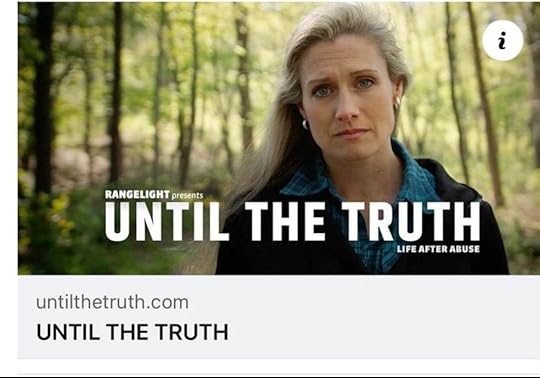
https://untilthetruth.com/?fbclid=IwAR3EGo4wcRSA67W3slktlUFdDK5KHGRD6UzI9Uil4LXCAVkcHejWZ4nEGos
On Facebook, a mama whose daughter’s many medical tests led to a diagnosis no one was expecting asked for prayer, and a free webinar was announced to help people learn how to talk to their churches about toxic teachings.

Then, on Twitter, the warriors locked arms against the heinous teaching that it is okay for a man to ignore his wife’s clear “no” and sexually assault her when she’s asleep. It is shocking that we have to verbalize that this man’s action is terrible. Or that a woman, who claims to be an “older woman teaching the younger,” would tell the victim that she should never have said no in the first place because it “defrauded” him, according to the Bible. The victim was told that her reaction to the rape should be to show “grace” to her rapist (after all, he only did it that one time — so far).
I’ve included screenshots of the OP’s tweets here, but left off her name and Twitter address. The less attention she receives for this kind of information, the better.

My response:
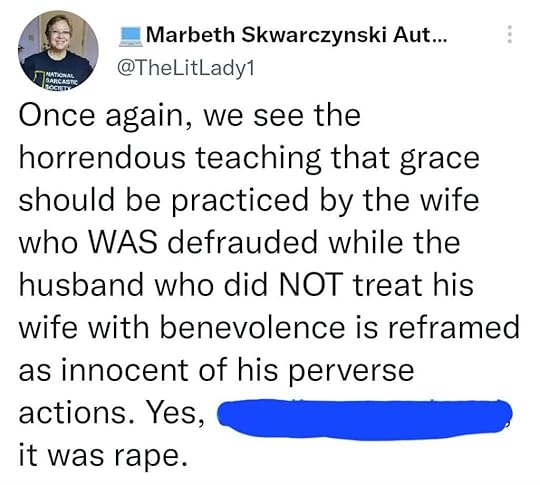
The OP claims that she’s following the Bible’s clear-cut instructions, but in reality, she carefully chooses verses that back up her already set-in-stone-beliefs. She loves to refer to I Corinthians in her arguments, but not ALL of I Corinthians. For instance, she tends to overlook the MUTUAL nature of a marriage. It turns out that BENEVOLENCE goes both ways.
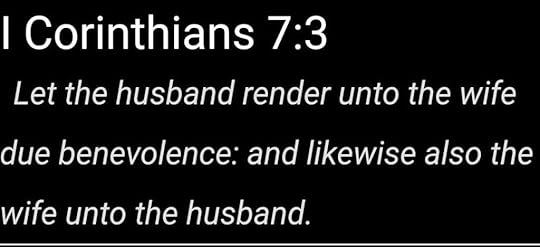
Definition of the Greek word translated as benevolence:
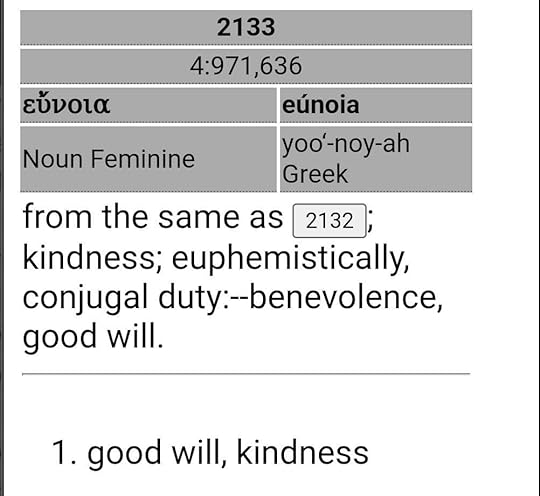
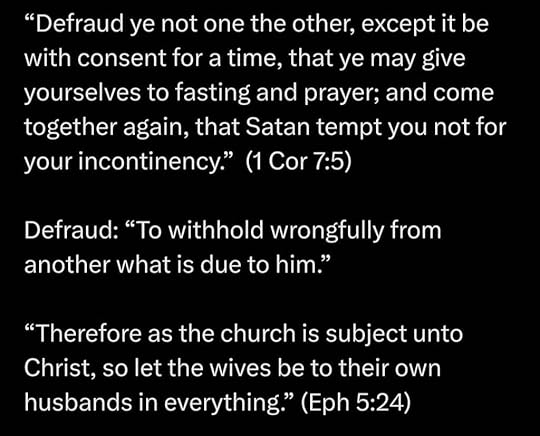
Again, the Bible (in the OP’s favorite verse to prove that sex-on-demand is biblical) promotes the idea of a MUTUAL agreement and CONSENT.
This the the definition of the Greek word translated as DEFRAUD. It’s not quite the same as the OP’s definition. In this specific case of marital rape, the defrauder is the husband/rapist, NOT the victim.
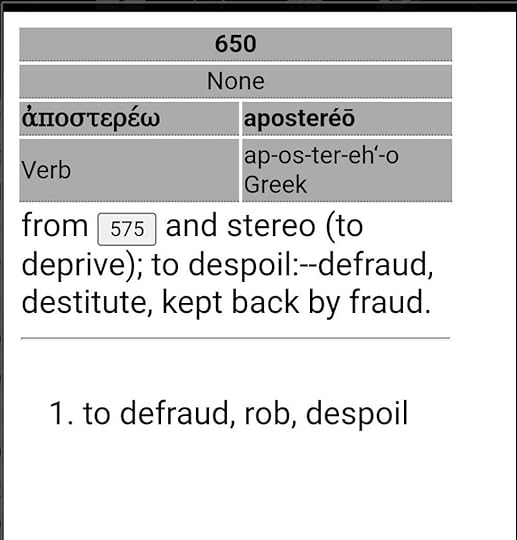
I have noticed that the OP has also conveniently forgotten to read the next verse. It turns out this is not a COMMAND to wives at all.
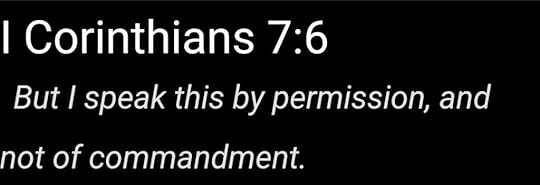
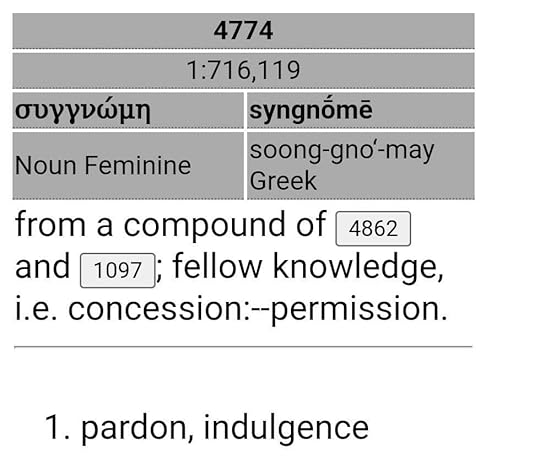
When women on Twitter spoke out against the awful advice the original poster gave to a sexual assault victim, she didn’t like it much. She dug her heels in and warned against calling rape by its proper name; probably because by doing so, she would have to admit a crime was committed.
Instead, she called for grace FROM THE VICTIM!
She didn’t say that the man who was told “no” to have grace for his wife who didn’t feel up to a sexual encounter. She then claims that she’s never taught that men should force themselves on their wives, but in her original post, she did exactly that. She then claims that the woman’s husband was NOT physically violent.
The man RAPED his wife. That is the DEFINITION of physically violent. As for the excuse that it was a “one time thing,” how in the world could you possibly know that? If he got away with it once, without any consequences, what makes you think he won’t do it again?


The Bible does not condone marital rape or the idea that a woman can never say “no.” A Christian marriage should never resemble a crime scene. Abuse should never be a part of a Christian church or family. God’s name should not be “taken in vain” by those who abuse others while hiding behind cherry-picked, out-of-context verses from the Bible.
I’ve spent the past decade writing novels about how wrong teachings lead to spiritual abuse and how spiritual abuse leads to betrayal, economic hardships, sizeism, sexism, and physical and sexual assault. I’ve been self-published for three of those years. My social media circle has grown since my books hit the market. The negative aspect is that many destructive teachings are still being taught. The positive part is that more and more women are speaking out against them. The truth is prevalent and is quickly overtaking the lies.
So, to all my warrior women out there — keep encouraging, keep praying, and keep standing your ground. We have the truth on our side, and plenty of people still need to hear it.
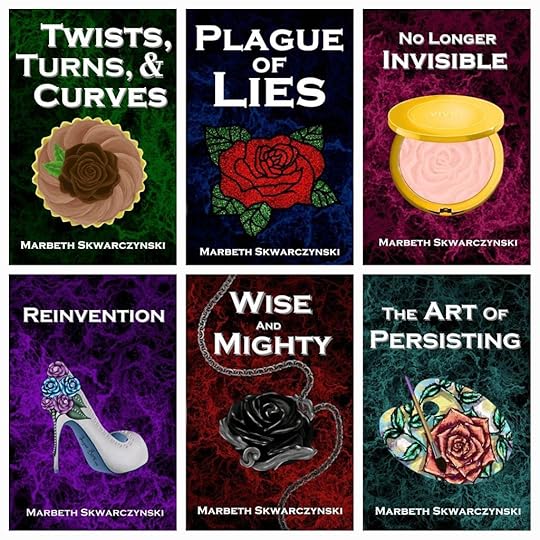
June 5, 2023
Shadow Dancing

I recently became a part of Celebrate Lit Bloggers and was excited to see Jennifer Sienes’ Shadow Dancing as one of the books to review. I downloaded the ebook and saw it was the second novel in a series. Immediately, I downloaded the first book, Night Songs, as well and began to read. I wasn’t even a chapter in before realizing I had just stumbled upon a new favorite author. Jennifer Sienes has a gift for turning the usual romance tropes upside down and giving them a good shake.
Night Songs by Jennifer Sienes was a wonderful surprise of a book. A split-POV novel, it focuses on two beautifully developed and dynamic characters. Charlie has had enough tragedy for two lifetimes, but discovering that her husband is cheating on her (again) and losing her job is enough to send her back to her nana’s old house. Usually, her tragedies are coupled with seeing Derek, the neighbor boy she’d given up on loving years before because she couldn’t compete with his military duty. Now, he’s discharged and working to discover how he wants to live the rest of his life. Seeing Charlie is a surprise, but learning that she’s walked away from her marriage to his brother shocks him down to his socks. What in the world does God have in mind?
I wasn’t sure what to expect from the second book in the series, Shadow Dancing, but I knew it was going to be good. And it was. Shadow Dancing is a compelling story that drips with pain yet continues to pull the reader in.
Rebekah’s life didn’t just go off the rails; it fell into a rocky gorge of white water. After leaving her husband of 15 years, she’s living with her parents and working two jobs to make ends meet. She can’t even think about her life with Mitch; because when she does, she remembers that it’s his fault her life is in shambles.
Mitch has never been a believer, and it’s been a bone of contention between him, Rebekah, and his in-laws. Still, they were good people; he admired their strength and respected their beliefs. So, when tragedy struck, he was hurt when she accused him of negligence but downright shocked when Rebekah blamed God. Mitch loves his wife and misses her terribly. He’s gotten to the point where he’s willing to try anything to win her back.
Night Songs and Shadow Dancing were enough to convince me that I’d stumbled upon a talented, new-to-me favorite author. I’ll be reading every book she puts out.
About the BookBook: Shadow Dancing
Author: Jennifer Sienes
Genre: Christian Women’s Fiction/Southern fiction
Release Date: April 18, 2023

Wading through grief is like dancing with shadows.
Bekah Casey’s been on a tear for near a year, and the anger clings to her like cheap perfume. If only the Lord would wash it away like He did with her sins, she might could find her way out of the mire. Instead, she escapes from the one person to blame for all her ills—her husband Mitch.
Now she’s living with her mama and daddy, working two jobs, and facing a future that looks bleak as a middle-Tennessee winter. Her mama’s all the time telling her that the good Lord works in ways too confounding to comprehend, and if she’d learn to trust in Him, her life will look a might brighter. Easy for her to say.
When things go from dark to disastrous, Bekah figures she’s got two choices—sink in her sin or dig her way out.
Mitch Casey never did put a whole lot of stock in faith. Didn’t appear it helped Bekah any either since hers went sideways the minute things got hard. Still, he’s willing to take whatever abuse she throws his way if it helps her muddle through the grief. Then one poor decision, a night in jail, and a divine assignment with a local pastor puts Mitch on an unexpected path.
When you’re dancing with shadows, who gets to lead? Find out in the next book in the Bedford County series.
About the Author
Jennifer Sienes holds a bachelor’s in psychology and a master’s in education but discovered life-experience is the best teacher. She loves Jesus, romance and writing–and puts it altogether in inspirational contemporary fiction. Her daughter’s TBI and brother’s suicide inspired two of her three novels. Although fiction writing is her real love, she’s had several non-fiction pieces published in anthologies–two in Chicken Soup for the Soul. She has two grown children and one very spoiled Maltese. California born and raised, she recently took a step of faith with her real-life hero and relocated to Tennessee.
More from JenniferLast year I was interviewed on a Christian podcast, and the host asked me, “How do you come up with your story ideas?” There are as many answers to this question as there are authors, but he wasn’t satisfied with mine. I told him they truly come from the Lord. I think he wanted tips to encourage would-be writers. I’m sorry to disappoint, but although I might have a story sketch in my mind, it never matches the completed project. Why? Because I’m not in control.
Over the last several years, I’ve discovered that my writing journey is as much spiritual as it is creative. Shadow Dancing is a perfect example. It started with my intention to fictionalize the past marital difficulties of a young couple in my church. But before I finished the first chapter, it became clear the Lord had other ideas. The initial plot I’d fixed in my head doesn’t resemble the finished novel in any way—unless you consider the main characters are separated. The theme of my novels always reflects what I’m wrestling with in my heart at the time I’m writing it.
The major theme in Shadow Dancing is God’s sovereignty. Most of us have no problem accepting His will as long as our lives are going well. It’s when something difficult happens we begin to doubt His goodness. How often have you seen a tragedy pull a fellow Christian away from the Lord? The question, “Why would a loving God allow bad things to happen to good people?” has been a stumbling block for many people—both Christians and non-Christians alike.
But sometimes it’s the tragedies in life that draw people closer to God as they realize He’s the only hope they can cling to. This was the case for me. I believed in God, but I didn’t have a personal relationship with Jesus Christ, when my ex-husband of 23 years abandoned me. This was on the tail-end of my daughter’s near-fatal car accident that left us with months of rehabilitation for traumatic brain injury. It’s when I realized that believing I was in control of my life and that of my children was a lie from the enemy. We cannot protect those we love by hovering over them or keep a marriage intact by sheer will.
I wanted these truths to play out in the lives of Rebekah and Mitch Casey. In the light of heartache, Rebekah’s spiritual walk goes in one direction while Mitch’s goes another. But through it all, they are left with hope. That’s what I desire every word I ever write to point to. The hope we have in our Lord and Savior Jesus Christ. And isn’t it the greatest gift to know our loving and merciful God has us in the palm of His righteous right hand—forgiven and free? So much better than relying on our own flawed and sinful selves.
I pray Shadow Dancing reminds you of everything we have and will continue to have as adopted sons and daughters through Jesus Christ. Hope of eternal life in a world where heartache and sin will be a thing of the past.
Blog StopsLocks, Hooks and Books, May 27
Gina Holder, Author and Blogger, May 28 (Author Interview)
Holly’s book corner, May 28
Splashes of Joy, May 29
An Author’s Take, May 30
Because I said so — and other adventures in Parenting, May 30
Happily Managing a Household of Boys, May 31
Truth and Grace Homeschool Academy, June 1
By the Book, June 2
Debbie’s Dusty Deliberations, June 2
JESUS in the EVERYDAY, June 3
For Him and My Family, June 4
Older & Smarter?, June 5
The Lit Lady, June 5
Sylvan Musings, June 6
lakesidelivingsite, June 7
Back Porch Reads, June 7
Texas Book-aholic, June 8
She Lives to Read, June 9
Books I’ve Read, June 9
Giveaway
To celebrate her tour, Jennifer is giving away the grand prize package of a $25 Amazon gift card & a copy of the book!!
Be sure to comment on the blog stops for nine extra entries into the giveaway! Click the link below to enter.
https://promosimple.com/ps/266f2/shadow-dancing-celebration-tour-giveaway
June 3, 2023
Shiny New Documentary
Like many in my circle, I watched Shiny, Happy People on Prime Video. It is the latest in a too-long list of cult documentaries available for streaming. More than a limited series about the Duggars, it is a scathing piece on the practices of the IBLP. The Institute of Basic Life Principles was advertised as a homeschool curriculum guaranteed to educate children better than any Christian or public school ever could. It didn’t deliver. Instead, it produced a generation of poorly educated adults who were trained to obey without hesitation. Men were told that in their houses, they were the undisputed leader of their own homegrown group of believers. Women were taught to be selfless servants whose bodies would be used to create a quiver full of babies. Older children raised and taught their younger siblings — losing their childhoods in the process.
https://www.amazon.com/gp/video/detail/B0B8TSG92M/ref=atv_dp_share_cu_r
While the documentary was fascinating, the information wasn’t new. Since I write faith-based Christian fiction that exposes spiritual abuse, I’ve become familiar with these patterns and feature them in my novels. (For more information, go to “Menu” at the top of the page and click on “Books by Marbeth Skwarczynski.)
Nearly every cult has the same traits: narcissistic leadership, strict rules governing personal choice, the demand for obedience, and the discouragement of critical thinking. Then come the various types of abuse that result from spiritual manipulation: economic, physical, sexual, and emotional.
The great thing about streaming services becoming saturated with documentaries like Shiny, Happy People is that discussing spiritual and church abuse is more acceptable now than ever before. Of course, it isn’t a new problem — and neither is the discussion — but in previous years, the information as revealed in television shows, movies, plays, novels, and memoirs has been brushed off as a plot point at best or an attack on “the church” that demanded a boycott at the very worst.
Today, we’re less likely to brush off a survivor’s story as a lie and less likely to fall in line behind a charismatic leader just because they are in a leadership position. Or at least, we’re on our way there. And it’s about time.

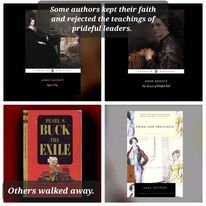
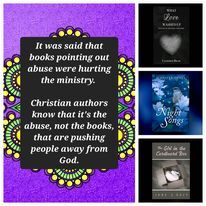
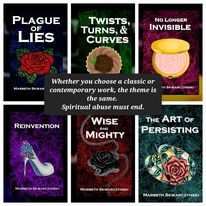
May 27, 2023
Speaking of Issues …
It isn’t always easy to speak about the issues of the day. Mostly because our issues are as varied as our personalities. Now that communication isn’t hindered by distance, it has become easier to add like-minded individuals to our communities by going online. Social media groups and well-curated feeds provide us the opportunity to safely relate our experiences as we empathize with others. The openness of communication has the added benefit of shedding light on questionable, narcissistic, or even abusive behaviors. We share the red flags we didn’t notice at the time so that others will be able to recognize them. We also wave the green flags that make our new lives so much better. Safe spaces abound, and open (polite) communication is welcome. If someone is rude or unkind, we have the power of the block. We are no longer compelled to endure the presence of those who steal our peace.
It’s a different world.
In my online community, I am encouraged to be creative. I’m reminded to write and to read, and to support my fellow authors and artists. My work is no longer hidden deep in the files of my computer for fear that its message would be unwelcome. Now I live with the philosophy that there is plenty of room for all of us to be successful.
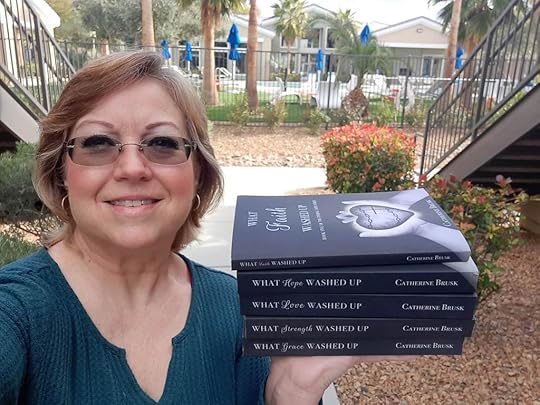
I started writing because I didn’t know how else to speak of the issues I was facing. I felt unheard, unwanted, and unneeded. I struggled out of bed every morning, cried in the shower, ate something starchy for breakfast, and blasted music for the mile drive to my job. I didn’t allow myself to think very often because thinking led to crushing frustration, anger, and discouragement. It was better for me to keep my mind focused on what I needed to do at the moment. Planning ahead was extremely structured and related to my job. How could I do it better? How could I make the educational experiences of my students phenomenal? How could I relate to them that we never, ever stop learning?
Even during the summer holidays, my focus was on work. Aside from days I set aside to spend time with family at the beach or an amusement park, I spent 10-12 hours a day writing lectures, notes, and textbooks. It was me attempting to fit nine months of work into three because once the school year started, I wouldn’t have time to do prep work. I’d be busy teaching.
By the time we got to the shorter school holidays, I was burned out. That’s when I would write for myself. I started with reworked short stories and poetry and a novel I wrote during my college years. I started a sad little blog and did my best to keep it updated. I even submitted some of my work to writing contests.
My first contemporary Christian novel was written during those in-between times. The story was sparked by an event at my church, but the story was original, and the characters developed as they revealed their ideas, insights, and plans to me as their writer. For the next few years, I rewrote and crafted, and submitted my book to contests and agencies, looking for feedback and hoping for representation.
It wasn’t until I decided to self-publish that I really understood the purpose of my novels. By that time, I had quit my career in teaching. My plan was to write full-time. I attempted one last time to get an agent with the idea that if it didn’t happen, I would publish my novel through Kindle Direct Publishing (KDP). My work was given a pass, and I was okay with the rejection.

That summer, instead of revising textbooks, I revised my novel and published it in September.
Plague of Lies is told in two parts. Lauren Andrews-Gianni knew her mother, Cindy, loved her, but she and her mom lived with her grandparents, who let Lauren know that her unexpected birth had ruined her mother’s chances for a successful life. The only person they blamed more than their granddaughter was Lauren’s absent father. He had persuaded Cindy to keep the baby and then left when Lauren was only a few months old. The other part of the story focuses on Scott, Lauren’s father, who reaches out to his daughter on her 18th birthday. As he opens his home and life to her and makes himself available to answer any questions she has, she discovers that much of what she learned about him wasn’t true.
My second novel, Twists, Turns, and Curves, is about a plus-sized teacher (identify much?), Caroline Taft, who is fired from her job just before spring break but is expected to continue teaching until her contract runs out at the end of the school year. With the end of her career comes the beginning of a life of love, joy, and fulfillment. She starts dating a man she’s had a crush on for two years, but who she considered only a friend because she didn’t think she was worthy of anyone’s love. But Ty’s attraction to Caroline encompasses all of her. I wrote this novel during one of my own spring breaks while still a teacher. I lived through Caroline as she got to leave and find a career and a relationship where she was appreciated.
My next book wasn’t part of The Rose Collection of novels. While teaching about women’s rights in my American history class, I had the students read the “Declaration of Sentiments” written by Cady Stanton for the Seneca Falls Convention. We followed it up with Sojourner Truth’s speech, “Ain’t I a Woman?” Finally, I handed out a paper with Proverbs 31:10-31 printed on it. Like most women in our denomination, I’d always had Proverbs 31 presented to me as a to-do list that a woman must complete (daily) to be seen as a truly godly person. But that doesn’t exactly mesh with the rest of Scripture. Where is the joy of salvation? Our rest in God’s love? I reframed my view of the passage as a list of rights that every woman already had (much like the Bill of Rights of the United States lists enumerates the rights of its citizens. Between each verse on the handout was a sentence describing pointing out that each verse could be seen as describing a right for women. My students weren’t all that impressed, but the adult women who read it were. My sister loved it but wasn’t quite satisfied with its brevity. She encouraged me to expand it into a Bible study. It took a while for me to come up with a plan, but once I decided to write using Bible women as living examples of the enumerated rights, I was hooked. Writing The Women Who Set the Precedents was a joy and a blessing. I came to love those amazing women in Scripture all over again — especially Bathsheba, the woman whose prophecy was dutifully written down by her son. When I expanded my look at the chapter, I realized that the first ten verses are callbacks to Bathsheba’s horrific experience with David. Like many in my circle, I used to teach that Bathsheba was complicit in her sexual assault. Studying her life in Scripture for this book completely changed my mind. Not only was she blameless, but David was also unequivocally guilty and had created a system that enabled him to sin against his own citizens.
The funny thing is, when I started writing novels, I had quite a few people tell me that they didn’t read fiction, but if I ever wrote a nonfiction book, they’d read it. My sales, ratings, and reviews have not proven that to be the case.

Still, I love The Women Who Set the Precedents and market it often. I’ve even created reels of quizzes featuring the women in the book.
View this post on InstagramA post shared by Marbeth Skwarczynski (@skwarczynskimarbeth)
For book three, No Longer Invisible, I reached back into my time before teaching when the church I loved and thought of as a second home offered To Train Up a Child to the parents of the congregation as an aid to help them raise godly children. My children were about 6 and 1 at the time. They were the age the book was written about. I took it home and read it. I was appalled. If it were released as a puppy-training manual, it would have been denounced for its violence. Instead, the violence in the pages was couched as supreme acts of love. If a parent felt that beating their child according to the teaching of the book was wrong, it was because they didn’t love their child. In No Longer Invisible, I look at the long-lasting effects of these practices on a young woman raised by narcissists using discipline as an excuse for abuse. Not only did I feel I could finally speak out against the book and the parents who used it, but I could also address my experiences with cruelty and narcissism — behaviors excused and mislabeled as ‘leadership qualities.’
It took me a long time to write Reinvention. I wrote an entire version dedicated to one character, Ally James, but the book was never quite right until I allowed her best friend, Michael Bernard, to have a voice as well. Now, this novel about childhood sexual abuse disrupting the lives of two adults just trying to leave their hurt-filled history behind them is one of my favorites. These two wonderful friends encourage and rescue each other as they work through the past that haunts them. While writing this book, I was attending a church that aligned itself with an organization that was more concerned with protecting sexual predators than those who were abused. I spoke up. I wrote letters. I texted. Nothing I did mattered. Bringing up the danger of welcoming pedophiles into the church was seen as a threat to the ministry. The presence of a pedophile? Not a threat; an opportunity to show grace. So utterly, completely backward.

I wrote Wise and Mighty in my desperation to understand the philosophy of my church. This was another split POV book featuring a pastor and his wife. The pastor wants to change his denomination from the inside out — fix what’s broken. His wife doesn’t think it’s fixable and would rather leave it behind. Both love their church and its people. Both want what is best for their congregation as well as their family. So how would they reconcile their differences of opinion? And when would they both agree that the denomination itself was poisonous? One of the things I’ve learned in my reconstruction journey is that when you are in a toxic situation, you have no idea HOW toxic it is until you leave.
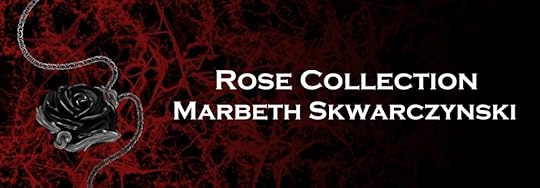
I’m currently working on book six of The Rose Collection. The book is called The Art of Persisting and is about Ginger Douglass, a woman who was adopted by a church planter and his wife, but because they were on the road all the time, she lived with various members of her church nine months out of the year so she could attend their Christian school. As an adult, Ginger pushes through CPTSD developed in her early years to build a life for herself under a new name and new outlook. She knows what she wants. Ginger’s talent is artistic in nature, and as an independent woman, she can use that talent as she sees fit.

My talent is telling stories. I can claim that talent without embarrassment now, but that took work. Any talent, any ability, was viewed with suspicion. Any sign of pride was immediately quashed. It’s hard to break free from that mindset that success equals conceit. Marketing avenues that I SHOULD take, I avoid, because I can’t see myself as good enough to make them work. But I’ve started to push myself a little more, offering my talents to write blurbs and book club questions for other authors — and so far, it’s been a great experience.
I may still be viewed with suspicion, but now it’s because I’m telling stories that are familiar to people who were silenced for decades. I’m writing and speaking about the issues of the day, and I am loving my new life. I’ve also come to care very little for the opinions of those who prefer silence to justice and the protection of the innocent.
Now, when I wake up, I’m ready to work. I write and edit, knowing I am relating a story worth telling. I connect with other writers online. I create memes that not only crack me up but make others laugh too. I get texts from people who have read my books and converse with them. We are creating a network of support and kindness. We are finally able to speak up.
Even about the tough issues.
View this post on InstagramA post shared by Marbeth Skwarczynski (@skwarczynskimarbeth)
May 20, 2023
The Anti-Heroine
When I taught the Wednesday night Adventure Bible Club for 3-6th graders at my former church, I made it a point to focus on Bible stories. I know. A radical idea, right? While I did teach some familiar passages, I also went out of my way to introduce the kids to some of the “untold” tales. They especially loved the gross and gory stories. Their favorite? Ehud, the left-handed judge.
In the sixteen years I spent repeatedly going through the Bible with my students, my outlook on one specific character changed drastically. I went from seeing her as a bland accessory of her husband’s to viewing her with extreme distaste. If I were to write a Biblical historical fiction novel with an unreliable narrator, I would choose this woman who had long been held up to me as a paragon of virtue but whose actions (fruit) reveal her narcissistic tendencies.
Like most narcissists (especially those of the covert variety), she has a few good points, but overall, her life is one of unkind manipulation and injustice.
The life of Sarah, Abraham’s wife, wasn’t one of the gross and gory stories the kids begged to hear again and again, but it did have a heartbreaking impact on some of the children in my class.
It was her treatment of Ishmael that made me decide to look deeper into Sarah’s character. Like most Bible people, we only have tiny glimpses of her life. Her entire story is summed up in 50 verses (13 verses with the name Sarai, 33 with the name Sarah, and 4 as Sara), which may seem like a lot until you consider that they cover a lifespan of 120 years.
While she’s listed in the Hall of Faith (Hebrews 11) as an acknowledgment that she followed her husband’s lead as he traveled through the land promised to him and his descendants, there really isn’t much more that can be said for her. Sarah never stood up for what was right when her husband was drifting away from God’s plan. She’s listed with Lot, her nephew, a man who followed Abraham as he followed God’s leading, but whose later behavior was reprehensible. It is only the good in their lives that is featured in the Hebrews 11 passage dedicated to faith.
It’s important for readers of the Bible to acknowledge that not every person, every story, and every event is a good one. They don’t ALL reflect God’s mind or desires. Many times, the Bible simply presents an event without comment, allowing the reader to view the behavior of a character and its consequences. The idea of “descriptive, not prescriptive” works well here.
When it comes to Sarai (later renamed Sarah), much of her story is offered without comment. She leaves with Abram (later renamed Abraham), traveling from the established city of Ur to the land of Haran, where they remained for several years, and then onto a nomadic life within the borders of the land of Canaan. All of this was a picture of her faith. Not only did she trust her husband’s calling, but she also trusted the God who called him and was at his side throughout their pilgrimage.
It seems incongruous with her later behavior.
Sarai had a handmaid[1] from Egypt named Hagar. Using the laws and customs of the time, Sarai offered Abram a solution to her inability to have children. Hagar would be used as their surrogate.
Hagar would also be a wife.[2] But she would be a wife without a voice or a choice. When she became pregnant — the whole goal of her change of station — she let her displeasure at her situation be known. Specifically, she was angry with Sarai for the way the woman manipulated her life.
Sarai did not take that criticism well. She saw that Hagar despised[3] her and presented that situation to Abram as Hagar being violent to HER. Sarai blamed Abram for how Hagar was acting. Sarai referred to Hagar as her maid (slave), and Abram used the same word when he told Sarai to do whatever she wanted to Hagar. Hagar went from slave to wife and back to slave again.
Even though Hagar was pregnant with Sarai and Abram’s child, the punishment she doled out to Hagar (dealing “hardly”[4] with her) was severe enough to convince the pregnant slave woman that fleeing into the wilderness was better than staying in the protective encampment. The Angel of the Lord told her to return to Sarai, but that doesn’t mean it was to be considered a pro-slavery example. Hagar was pregnant with Abram’s child. She was in a vulnerable state. The encampment was marginally safer than the wilderness.
People tend to overlook that when Hagar had Ishmael, SHE didn’t raise him. Ishmael was, for all intents and purposes, Sarai’s son. She brought him up for at least his first sixteen years. And then Sarai, now called Sarah, miraculously gave birth to a son, Isaac.
On Isaac’s “weening day,”[5] there was a great celebration. Ishmael was caught “mocking”[6] his little brother. Sarah lost her mind. She decided that because of Ishmael’s behavior, he was no longer her son. He was just the son of her handmaid.
This is the part of Sarah’s story that I cannot comprehend. I have two sons. The idea of rejecting one of my sons is unthinkable.
It was while I was teaching my way through the Bible in Adventure Bible Club and telling this part of Sarah’s story that I locked eyes with one of the kids in the class. He wasn’t a tough kid. He wasn’t a rebel. He was a middle child in a large family that was constantly trying to survive. He hated school holidays because when he couldn’t get to school, he and his siblings didn’t eat. If they suddenly weren’t at the house where the bus picked them up every week, we knew they’d had to find a new place to live. This boy, who had no real stability in his life, was silently crying, empathizing with this teen from thousands of years ago being rejected by the only mother he’d ever known—and then (at her insistence) kicked out of his home, away from his father.
The story of Sarah and Ishmael was, unfortunately, one that too many of the children in my class could relate to. They knew what it was like to have a parent get frustrated and say or do things they might later regret, but for Sarah, it went a thousand steps further.
Sarah callously threw her older son away, and every kid in the class felt it. It was their ultimate fear that someday, they might be discarded by the person who was supposed to care for and love them.
I was infuriated by Sarah’s behavior because it wasn’t just one bad decision. It was the culmination of years of wrong turns that led to the cruel treatment of her adopted child.
I don’t know if I’d ever have the heart to write a historical fiction novel about Sarah. Not only would it be hard for me to straddle the line between her good traits and her bad, but I also don’t know if I could live with her in my head for the two years it would take to create that manuscript.
I would love Sarah to be a paragon of godly virtue, a heroine I could emulate. Instead, the best I can do is learn from her mistakes.
[1] shiphchâh shif-khaw’ Feminine from an unused root meaning to spread out (as a family; a female slave (as a member of the household): – (bond-, hand-) maid (-en, -servant), wench, bondwoman, womanservant.
[2] ‘ishshâh nâshı̂ym
ish-shaw’, naw-sheem’
a woman: [adulter]ess, each, every, female, X many, + none, one, + together, wife, woman. Often unexpressed in English.
[3] qâlal kaw-lal’ A primitive root; to be (causatively make) light, literally (swift, small, sharp, etc.) or figuratively (easy, trifling, vile, etc.): – abate, make bright, bring into contempt, (ac-) curse, despise, (be) ease (-y, -ier), (be a, make, make somewhat, move, seem a, set) light (-en, -er, ly, -ly afflict, -ly esteem, thing), X slight [-ly], be swift (-er), (be, be more, make, re-) vile, whet.
[4] ‛ânâh aw-naw’ The idea of looking down or browbeating); to depress literally or figuratively, transitively or intransitively (in various applications). chasten self, deal hardly with, defile, exercise, force, gentleness, humble (self), hurt, ravish, submit self, weaken, X in any wise.
[5] gâmal gaw-mal’ A primitive root; to treat a person (well or ill), that is, benefit or requite; by implication (of toil) to ripen, that is, (specifically) to wean: – bestow on, deal bountifully, do (good), recompense, requite, reward, ripen, + serve, wean, yield.
[6] tsâchaq tsaw-khak’ A primitive root; to laugh outright (in merriment or scorn); by implication to sport: – laugh, mock, play, make sport.
For a book about some REAL heroines, please check out The Women Who Set the Precedents.
For contemporary Christian novels about today’s issues, click on the menu selection for “Books by Marbeth Skwarczynski.”
May 12, 2023
Cover Art and Artist
AKA, My Most Beautiful Blog Post.
The books I write are not mine alone. Once the theme and motifs reveal themselves in the story, I contact my cover artist, Kaylene Skwarczynski, and we discuss what singular symbol could represent the story. She’ll then take that idea and create a work of art.

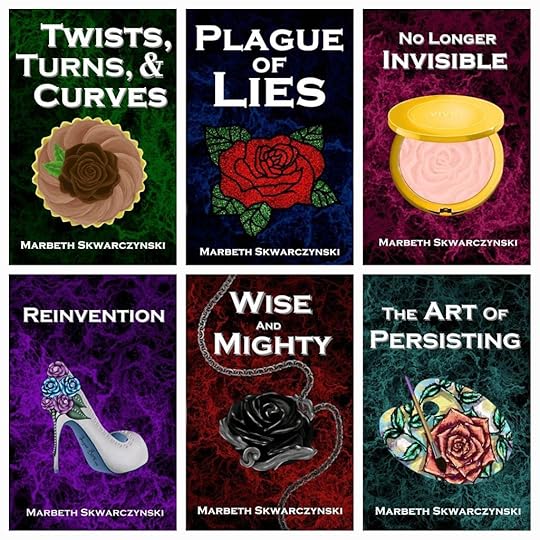
When we were discussing Plague of Lies, books featuring the backs of characters on covers were a new rage. I flirted with following the trend, but it just wasn’t me. After several discussions, however, Kay and I decided on a jewel-toned background with a single image to represent the overarching story. For Plague of Lies, the image was an embroidered rose patch. That patch was sewn on a mother’s hospital bag. Later, that bag, and its sparkly red rose, became the property of the daughter. The cover of Twists, Turns, and Curves features a chocolate cupcake decorated with a rose, a dessert created by the main character, after being forced to change careers. We were working on the third cover–a compact representing a character freed from an abusive situation where she was expected to fade into the background–when Kay mentioned that she’d saved the covers in a file titled, “The Rose Collection.” Her name for the series was perfect.
Book four is my favorite cover. The main character of Reinvention is a semi-retired model, so the choice of a peep-toed high-heeled shoe was perfect. The satin roses on the back are gorgeous. Personally, I don’t wear heels, but I can appreciate them as works of art. For Wise and Mighty, the focus was an obsidian necklace worn by the main character. For her, it represented who she wanted to be–implacable when needed, soft when necessary–beauty and strength all in one.
Book six has been put on hold for a bit, but Kaylene has created a gorgeous cover for The Art of Persistence, featuring a character reclaiming her artistic gift–and her life.
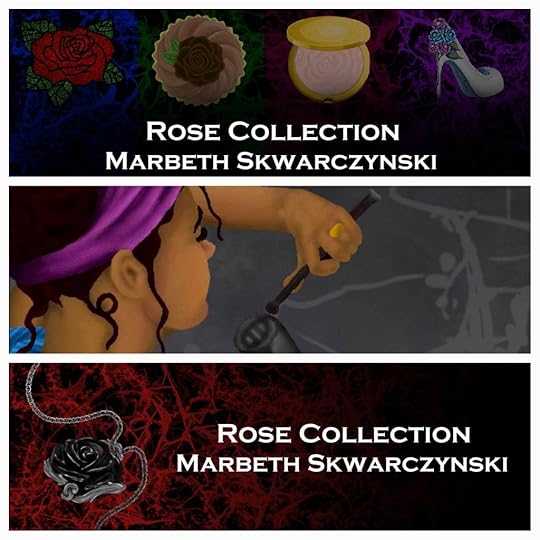
Kaylene also designed bookmarks for me and the cover of my one non-fiction book, The Women Who Set the Precedents.
I am fortunate that my talented cover designer is also a member of my family. Kaylene is my daughter-in-law, the mommy to three of my four adorable grandchildren, and my friend. But, of course, I’m not the only one who has noticed Kay’s talent.

Mine are not the only book covers Kaylene has created. These beautiful covers for author Micheala Burch are strikingly original. The characters break out of the darkness, while the forest flora reflects in their forms.
(Unfortunately, there are no links to these books just yet. I’ll add them when they become available)
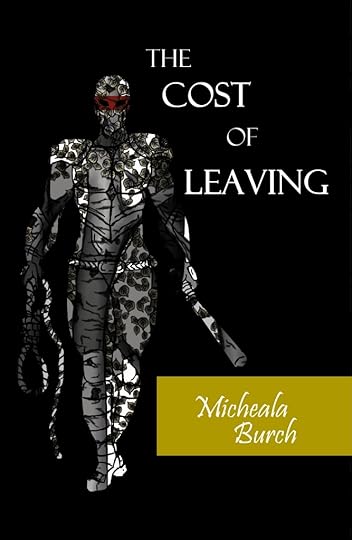
Kaylene has become so proficient in creating bookish works of art, that she and her daughter made this book together as part of a school project:


And she also created this book of beautiful flowers and colors for her youngest child.


One of the many things I appreciate about Kay is her desire to constantly improve. She often sketches or draws on her tablet, trying new techniques, colors, and styles.





Kaylene’s talent can be seen in her acrylic paintings as well. She painted the iris series for me as a gift, knowing that they are my favorite flower. The gazelle was a commissioned work. The video game paintings are the first two in a series she’s painting for her home.


Kaylene has also been commissioned to draw sketches that are destined to become family heirlooms.


Kaylene’s talent is clear to see, and I strongly recommend her to anyone looking for commissioned art, whether portraits, illustrations, or book covers. I’ve posted her contact information at the very top of the page.
I am honored to have Kaylene Skwarczynski as my cover artist. Although her talent is immense, it is matched by the generosity and love she shows her friends and family.
May 6, 2023
Small Celebrations
Right now, I’m sitting on my bed, hunched over, and typing this week’s blog post. In about two minutes, I’m going to have to change positions to relieve the crick in my back and the ache in my knee, but at this perfect moment, everything feels comfy. [Aaaannnddd foot shift.]
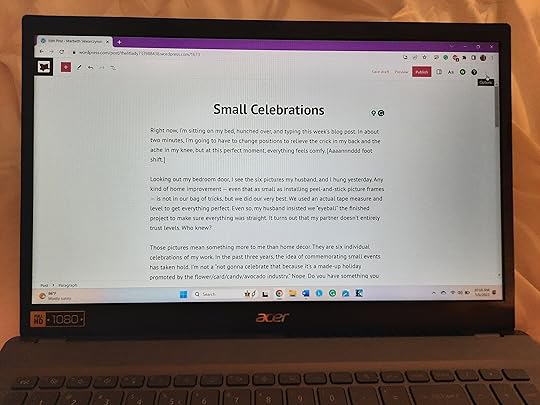
Looking out my bedroom door, I see the six pictures my husband and I hung yesterday. Any kind of home improvement — even that as small as installing peel-and-stick picture frames — is not in our bag of tricks, but we did our very best. We used an actual tape measure and level to get everything perfect. Even so, my husband insisted we “eyeball” the finished project to make sure everything was straight. It turns out that my partner doesn’t entirely trust levels. Who knew?
Those pictures mean something more to me than home décor. They are six individual celebrations of my work.
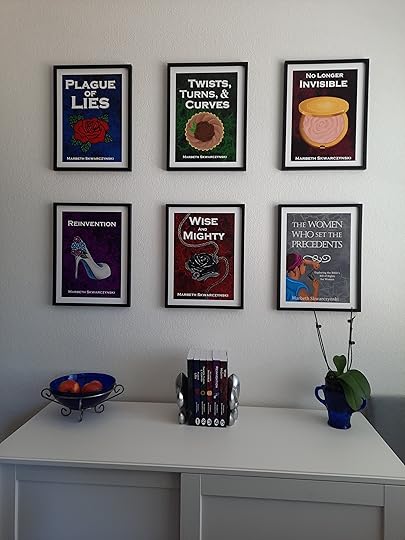
In the past three years, the idea of commemorating small events has taken hold. I’m not a “not gonna celebrate that because it’s a made-up holiday promoted by the flower/card/candy/avocado industry.” Nope. Do you have something you want to celebrate? Throw it into the mix! I’ll use it as an excuse to do something I enjoy. Okay, not so much an excuse but a reminder.
And while I’m writing this, I just have to say I’m a little annoyed at the Pretzel Day people this year. I missed it, which means I missed my opportunity to eat a vegan Chicago dog from Wienerschnitzel ON A PRETZEL BUN for this year’s celebration. I did later eat a vegetarian backyard dog on a pretzel bun (order mix-up and NOT on Pretzel Day), and it was good, but the Chicago dog is AH-MAZE-ZING, as you can see from last year’s picture.

ANYWAY — small celebrations.
When we moved into a new apartment last summer (to be closer to our Nevada granddaughter), we had the opportunity to start fresh. There’s a writer that I follow whose publisher sends her a framed book cover for each of her mystery titles. I loved the idea, and since I am my own publisher, I decided that I would dedicate a wall of our new place to my contemporary novels.
And then came the self-doubt and the voice of Ms. Who-do-you-think-you-are, whose entire goal in life is to make me second guess my worthiness. Eventually, though, I decided, that since I was proud of the work I accomplished and it was my apartment, I was going to hang those book covers and wasn’t going to let Ms. Who-do-you-think-you-are stop me.
When my husband asked me what I wanted for Christmas, I was ready. We ordered from Mixtiles, and the covers turned out even more beautifully than I could have imagined. Loved them.
And then … they sat in their box for over four months. I’m not a procrastinating WRITER. I’m a WRITER who procrastinates (about everything else BECAUSE I’m writing).
But yesterday was THE DAY! We were about to hop on a video call with our out-of-state grands and remembered (again) that the blank wall behind us was supposed to be filled with my book covers. This time, I wrote it down so I wouldn’t forget (again): HANG UP BOOK COVERS. After our call was over, my husband and I began the process, and I’m overjoyed by the result.
Every time I look at that wall, I celebrate. Here is proof that I focused on a task that meant something, not only to me but to my readers. Those who read The Women Who Set the Precedents got to view women from the Bible in a way that didn’t make them sound like props in a man’s story. One person who read it (at least the first chapter about David and Bathsheba) got furious at what I wrote, so, ya know, I made an impact there.
As for the five novels on the wall? Plague of Lies just hit over 50 reviews on Amazon! Twists, Turns, and Curves has comforted women who experienced sizeism in the church. When someone from Avid Readers of Christian Fiction asked what character readers would want as a real-life friend, Caroline from TT&C came up immediately, followed by Julia (and her Nana) from No Longer Invisible. Reinvention reminds me about all the secrets kept for decades that destroy people and churches from the inside out, as well as the comfort we can find in friendship. Wise and Mighty offers solutions that are anything but easy and is loved by women still working in the ministry.
Each cover is a celebration.
As for Ms. Who-do-you-think-you-are? I actually have an answer for her.
I’m a writer.
In the past three years, I’ve published six books that have encouraged, entertained, and educated my readers. No, I’m not a best-seller or a popular author, but I have a small readership who recommend my books to others and encourage me to keep writing about recovery from church abuse. Their voices are echoed in those of my characters, and they finally feel heard — and celebrated.
https://www.facebook.com/messenger_media?attachment_id=893933328373687&message_id=mid.%24cAABa86PnbtyOI3SXd2H8i4qe3nvh&thread_id=100002473406172April 28, 2023
Reading, Writing, and Recipes

I’ve had the displeasure of having had both reading and writing blocks. It was frustrating and even anxiety-inducing. How could someone who LOVES books suddenly feel that passion go cold?
Reading block isn’t talked about much, but it not only exists, but it’s also pretty widespread. My last experience with RB occurred after I pushed myself to read a book that I kept expecting to get better. It was an award-winning, very popular novel that I dreaded reading. Still, I made myself read several pages every night before going to bed — except on nights I just couldn’t. The book acted like a virus that spread throughout my system. I started avoiding the other books on my TBR. Instead, I turned to television and social media, picking up the dreaded novel out of self-imposed guilt.
It was two months of reading boredom, and by the time I turned the last page, I wasn’t just frustrated, I was angry. While the book was well-crafted, the main character remained static in his development despite covering a fifteen-year span of time and simply seemed to exist despite the strange and sometimes ridiculous events surrounding him. When I finished the bestseller, I couldn’t get into another book for almost a year after. I tried, but the boredom would return, and I’d have to put books aside for another time.
Just a note that I’m not going to call the book stupid or the author talentless. Others may read that same novel and be blown away and excited for the author’s next work. It just wasn’t the book for me.
Eventually, the reading-block virus ran its course, and I found books that not only held my attention but prompted me to seek out more deliciously interesting fiction and non-fiction works that sparked my imagination and brought back my joy of reading.
I’ve since decided that I’ll no longer push myself to read a book that I don’t absolutely love — or at least stop reading when a book continues to frustrate me.
Writer’s block is a more familiar term, but it gets some backlash. There are still some writing “experts” that insist ALL writers write every day WITHOUT FAIL or excuse and insist that skipping a day or week means that one isn’t a writer at all since “writers write!”
But there is also a community of writers who refuse to be bullied into someone else’s idea of a “proper” writing schedule. It’s a group that recognizes that, like every job, you need to take breaks to maintain a healthy outlook. Like many of my fellow writers, I’m a grandmother who takes whole days off to spend with family. Or I’ll take care of my marketing and then go see a movie with my husband. I know that the next day I am at home alone, I’ll write.
But what if the inspiration isn’t there? What if the story isn’t moving? What if I just don’t feel like writing?
Well, when I have those days of writer’s block, I follow a recipe. Even when I don’t have writer’s block, but I’m not settled enough to create with words, I’ll head for the kitchen.
Because when I say I “follow a recipe,” I’m not being metaphorical. I tap on Pinterest, find something delicious, and begin following the instructions. It isn’t a quick fix. In fact, I purposely take my time. For a few months, I was on a baking kick, and while my writing went well, and it was great for my mental health, I decided I should probably cut back on my sugar intake and focus instead on cooking.
There is a meditative aspect to following a recipe. Today, I chopped onions, tomatillos, and jalapeños, as I compiled ingredients for a vegan pozole verde — my favorite homemade soup. While I listened to an audiobook, I cut and sauteed and stirred and enjoyed moments away from writing that was still creative and positive.
https://www.pinterest.com/pin/68742864955/sent/?invite_code=38e810c0f9a74c20bbc47820295a510e&sender=302374699889852799&sfo=1Creative acts have a completion point, and creative people tend to focus on the end goal, but sometimes that drive to finish hurts us. The joy dwindles, and we eventually find ourselves “blocked.” A mix of imaginative outlets can help us enjoy the journey as well as the destination.
